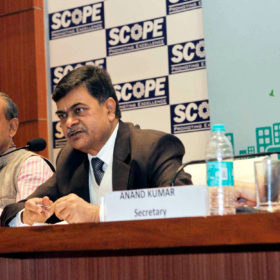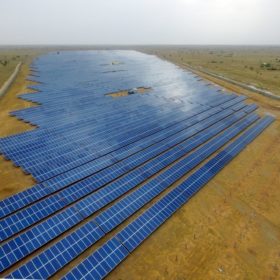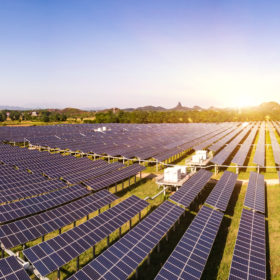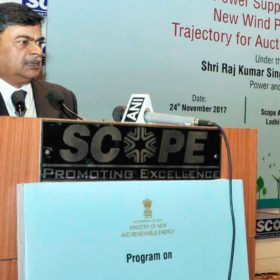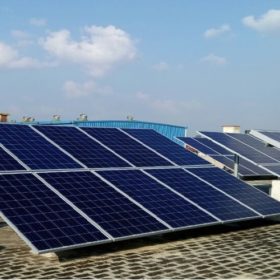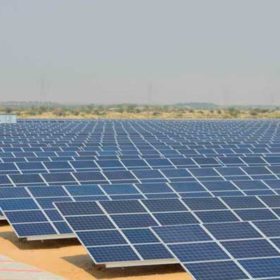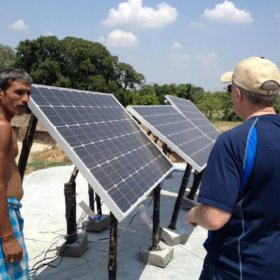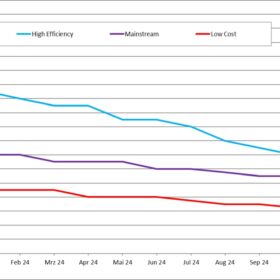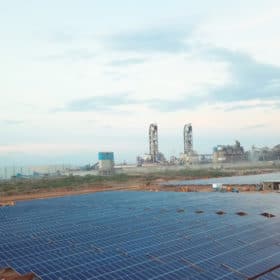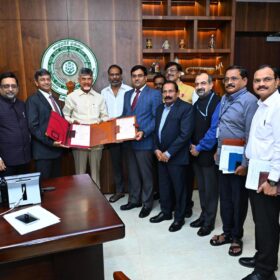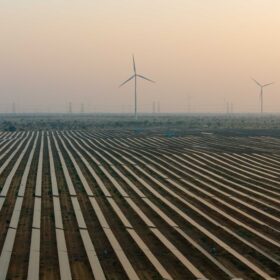The motives behind India’s 20 GW RE manufacturing auction plans
MNRE minister Raj Kumar Singh has announced plans to ramp up India’s domestic renewable energy manufacturing industry via an auction for facilities totaling 20 GW. Bridge to India and IHS Markit have shared their insights on the auctions, which are expected to solely comprise solar. They envisage capital subsidies, and increased interest by foreign manufacturers in setting up solar facilities.
PPAs signed for 750 MW Bhadla solar projects
The Solar Energy Corporation of India has signed power purchase agreements for the five solar projects totaling 750 MW. At auction, the Bhadla projects attracted the country’s lowest bids at INR 2.44 ($0.037)/kWh.
Solar developers not following DCR policy may face government action
India plans to take action against solar power companies using imported equipment for projects, which were awarded under the country’s domestic content requirement scheme, according to local media.
Jammu and Kashmir: 14 MW solar tender postponed
SECI has postponed the uploading of a tender document for 14 MW worth of grid-connected solar plants, including 42 MWh battery storage systems, for the Leh and Kargil districts of J&K.
MNRE releases roadmap for achieving 100 GW solar by 2022
The Indian government has finally clearly stated its solar objectives, and unveiled its plans for speeding up the work required to achieve them. The government is confident of achieving its 100 GW solar goal by 2022. The issue of rooftop solar is still to be addressed, however.
Interview: Digitalizing Indian solar operations to enhance returns
Eric Daniel, Head of India at QOS Energy, speaks to pv magazine about his views on the Indian market, specifically how a fully digitalized solar O&M and asset management helps enhance asset profitability.
The weekend read: Will duties ADD doubt to India’s solar growth?
The threat of India’s government imposing anti-dumping duties (ADD) against solar cells and modules from China, Taiwan and Malaysia is very real, and runs counter to its own ambitions of hitting 100 GW of solar by 2022. Or does it? Could duties help to boost India’s solar industry in other ways? And does the ongoing political uncertainty create opportunity or trepidation for industry?
Anti-dumping hearing moved to December 12
The anti-dumping hearing was scheduled to be held on November 30. It has, however, been postponed to December 12, 2017. The India Solar Manufacturers Association (ISMA) still expects a result in its favor.
Turnaround as Andhra Pradesh agrees to buy power from Kadapa solar plant
Despite the 250 MW solar project securing a record low bid of INR 3.15 ($ 0.05)/kWh in April, Andhra Pradesh refused to buy the generated power, after tariffs fell further in subsequent auctions. This decision has now been rescinded, according to The Economic Times, with the affected parties having reached a compromise.
India needs 330,000 renewable jobs, WRI estimates
India needs to create around 330,000 jobs over the next five years if it is to achieve its ambitious renewable energy goals, according to a new report by the World Resources Institute. Several methods have been recommended for boosting jobs in the sector, while also tackling poverty eradication.
